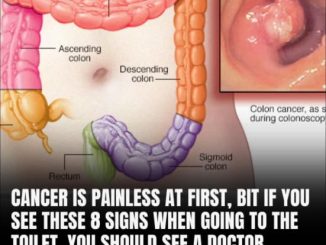
Let’s be real — aging comes with its own set of health challenges, and high cholesterol often tops the list. But here’s the thing: you don’t need to overhaul your entire life or rely solely on prescriptions to take control of your heart health.
For seniors especially, small, natural changes can lead to big results. From what you put on your plate to how you move your body and handle stress, these habits can make your heart stronger — one simple step at a time.
What High Cholesterol Means After 60
Cholesterol itself isn’t the bad guy. Your body actually needs it to build cells and hormones. The issue is when the “bad” kind — LDL cholesterol — starts to build up in your arteries, increasing your risk of heart disease or stroke.
And here’s the kicker: about 38% of Americans over 65 already have high cholesterol, according to the CDC.
As we age, our metabolism slows down and our body’s ability to process fats changes. But that doesn’t mean you’re stuck. In fact, natural, evidence-backed lifestyle shifts can help you manage — and even reverse — cholesterol problems.
Eat Smart: The Heart-Loving Diet Seniors Need
Let’s start with what’s on your fork. Diet is your first line of defense, and the good news is, heart-friendly foods can be both tasty and budget-friendly.
Foods That Lower LDL and Boost HDL
- Oats & Barley: These whole grains are full of soluble fiber that helps sweep cholesterol out of your bloodstream. Try a warm bowl of oatmeal topped with blueberries.
- Nuts & Seeds: Almonds, walnuts, flax, and chia contain healthy fats that help increase HDL — the “good” cholesterol.
- Leafy Greens & Colorful Fruits: Think kale, spinach, citrus, apples, and berries. Packed with antioxidants and fiber.
- Fatty Fish: Salmon and mackerel provide omega-3s that lower triglycerides and protect your heart.
- Beans & Lentils: Versatile, filling, and loaded with cholesterol-fighting fiber.
Foods to Cut Back On
- Red Meat & Full-Fat Dairy: These are high in saturated fats, which can spike LDL.
- Trans Fats: Found in many processed snacks and baked goods. Always check the labels!
- Sugary Treats: Too much sugar raises triglycerides and leads to inflammation.
Easy Meal Tweaks That Make a Difference
- Swap butter with olive oil or avocado spread.
- Go meatless one or two days a week — try lentil soup or veggie stir fry.
- Keep cut-up veggies or fruit within reach for a quick, healthy snack.
Just a few simple swaps can lead to big improvements — and the benefits go beyond cholesterol.
Move More: Gentle Exercise for a Stronger Heart
You don’t need to run marathons or lift heavy weights to get your cholesterol in check. In fact, light to moderate movement works wonders.
Best Senior-Friendly Exercises
- Walking: A 20–30 minute stroll daily can raise HDL and lower LDL. Bonus points if it’s outdoors and social.
- Chair Yoga or Stretching: Great for flexibility, blood flow, and calming the nervous system.
- Swimming or Water Aerobics: Perfect for sore joints and easy on the body.
- Resistance Bands or Light Dumbbells: Just 2–3 sessions a week helps maintain muscle and boosts metabolism.
Video : How to lower cholesterol naturally and quickly
How to Build a Habit That Sticks
- Start small — even 10 minutes a day counts.
- Set a reminder or tie it to a routine (after breakfast or before TV time).
- Find a buddy to keep you accountable and make it more fun.
According to the CDC, 150 minutes of moderate activity weekly is ideal for older adults — and breaking that into bite-sized sessions makes it totally doable.
Calm the Chaos: Stress Management for Heart Health
Believe it or not, stress can be a silent driver of high cholesterol. When you’re anxious or overwhelmed, your body releases hormones like cortisol that affect fat metabolism and cholesterol levels.
How to Lower Stress Naturally
- Mindfulness & Meditation: Even 5 minutes of slow breathing or guided audio can calm your nervous system.
- Stay Social: Isolation is a major stressor for seniors. Call a friend, join a club, or volunteer for something you enjoy.
- Rediscover Hobbies: Gardening, painting, puzzles — anything that brings you joy helps keep stress hormones in check.
- Laugh Often: Watch a comedy, chat with grandkids — joy is powerful medicine.
Studies in Circulation show that these simple relaxation techniques don’t just make you feel good — they also lower your risk of heart disease.
Add These Bonus Habits to Supercharge Your Progress
If you’re already adjusting your meals, moving your body, and managing stress, here are a few more habits that can enhance your results.
- Quit Smoking: It lowers your HDL and damages blood vessels. It’s never too late to stop.
- Watch Alcohol Intake: Stick to one drink max per day (two for men), since alcohol can raise triglycerides.
- Get Good Sleep: 7–8 hours nightly helps your body balance cholesterol and reduces cravings for unhealthy food.
- Stay Hydrated: Water helps regulate metabolism and keeps your heart working efficiently.
Your Daily Heart-Healthy Routine Could Look Like This:
- Start your day with a bowl of oatmeal and fruit.
- Take a short walk or do gentle stretches after breakfast.
- Choose a veggie-packed lunch or soup with legumes.
- Take a moment in the afternoon for deep breathing or journaling.
- Enjoy salmon, greens, and whole grains for dinner.
- Wind down with a book or calming activity before bed.
When to Check In With Your Doctor
Natural changes work — but they take time. You may notice improvements in cholesterol levels within 6–12 weeks, according to Harvard Health. Still, it’s smart to have your numbers checked regularly.
Call your doctor if:
- Your cholesterol stays high after months of lifestyle changes.
- You have a family history of heart disease.
- You experience chest pain, shortness of breath, or dizziness.
- You’re unsure how diet or exercise might interact with your medications.
Even if you do need medication, these natural changes can enhance their effects — and may reduce your need for higher doses.
Why Going Natural Works So Well for Seniors
Natural approaches to lowering cholesterol are powerful because they address root causes. You’re not just masking symptoms — you’re strengthening your entire system.
Plus, these habits:
- Improve energy and mood.
- Help manage weight.
- Support better digestion, sleep, and mental clarity.
- Build confidence and independence.
And let’s not forget — they taste great, feel good, and put you in charge of your health.
Video : This Carb Lowers Your Bad Cholesterol Levels Fast!
Final Thoughts
High cholesterol isn’t something you have to accept as “just part of aging.” With small, consistent changes — like eating more fiber, walking daily, managing stress, and sleeping well — you can take charge of your heart health naturally and confidently.
Start with one habit this week. Maybe it’s oatmeal in the morning, a walk after lunch, or calling a friend to laugh and de-stress. Each choice adds up to something stronger: a healthier, happier you.
Your heart’s got a lot of life left in it. Treat it right — and it’ll take care of you in return.


